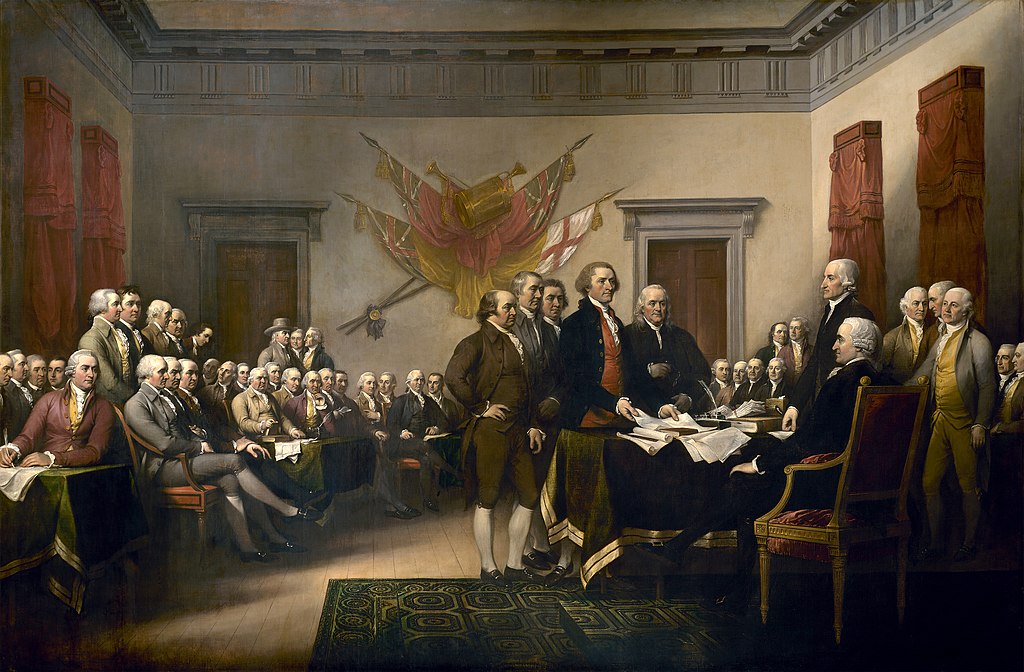Authors:
Historic Era:
Historic Theme:
Subject:
December 1962 | Volume 14, Issue 1


Authors:
Historic Era:
Historic Theme:
Subject:
December 1962 | Volume 14, Issue 1

When the Continental Congress opened its session of Friday, August 2, 1776, in Philadelphia, the major business of the day was to continue a somewhat moribund debate on the Articles of Confederation. An incidental piece of business was the signing, by all the delegates to the Congress, of an engrossed copy of the Declaration of Independence—a matter which John Adams did not consider sufficiently important to mention in his diary of the day’s events. The great day, to him, was neither that of the signing of the Declaration, August 2, nor that of its adoption, July 4. The day “to be solemnized with pomp and parade, with shows, games, sports, guns, bells, bonfires, and illuminations [he wrote his wife] from one end of the continent to the other, from this time forward forever more” would be July 2—the day the Congress passed a resolution affirming that the states were independent of the British crown.
There was little ceremony about the signing. Fiftyone of the fifty-six delegates were present. The other five signed the document later, in the fall of 1776, except for Thomas McKean of Delaware, who signed it sometime after January, 1777, or—according to some evidence—asiate as 1781. John Hancock, who as President of the Congress was the only delegate to sign the original document when it was adopted on July 4, was the first to sign the engrossed copy. Highly theatrical in temperament, Hancock wrote his name large and bold, commenting—so it was narrated years after—that he wanted John Bull to be able to read it without spectacles. Franklin, the oldest of the delegates, was reported to have responded to Hancock’s worried “We must be unanimous…we must all hans; together” with his breezy “Yes, we must indeed all hang together, or most assuredly we shall all hang separately.” One of the newer members of the Congress, William Ellery of Rhode Island, who was of a literary bent, sensed the history of the occasion; he stationed himself close to the secretary in order to observe the expressions on the faces of the delegates as they affixed their signatures. “Undaunted resolution,” he reported of all of them.
There is little evidence that the actual signing struck any delegates, other than the impressionable Ellery and the dramaturgic Hancock, as one of the great moments in history. The delegation from Massachusetts, where the war had been going on for well over a year, thought it was long overdue, and Samuel Adams grumbled constantly about its lateness. Elbridge Gerry agreed with him: “We should have declared independence last winter and received a great advantage therefrom…” But Robert